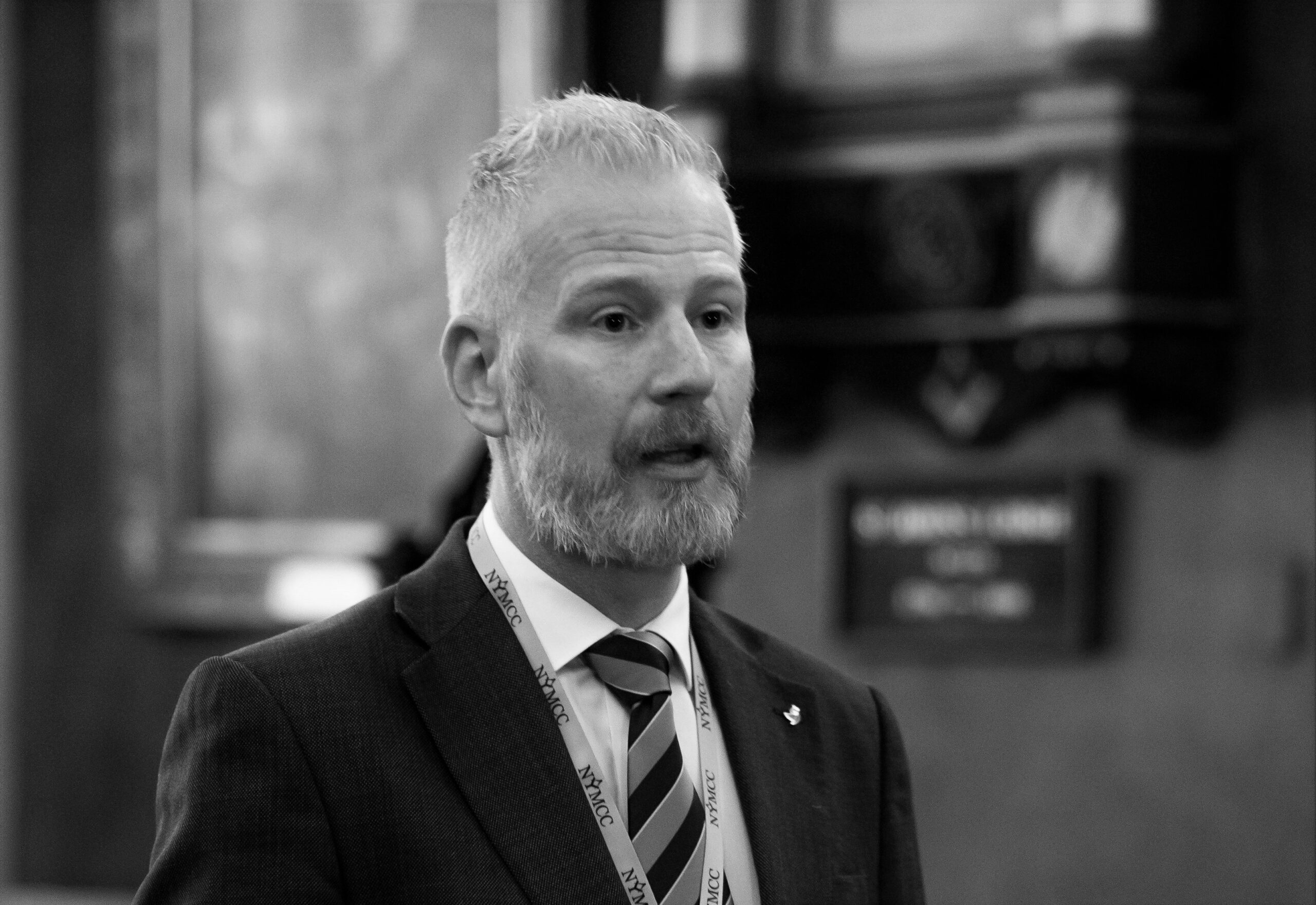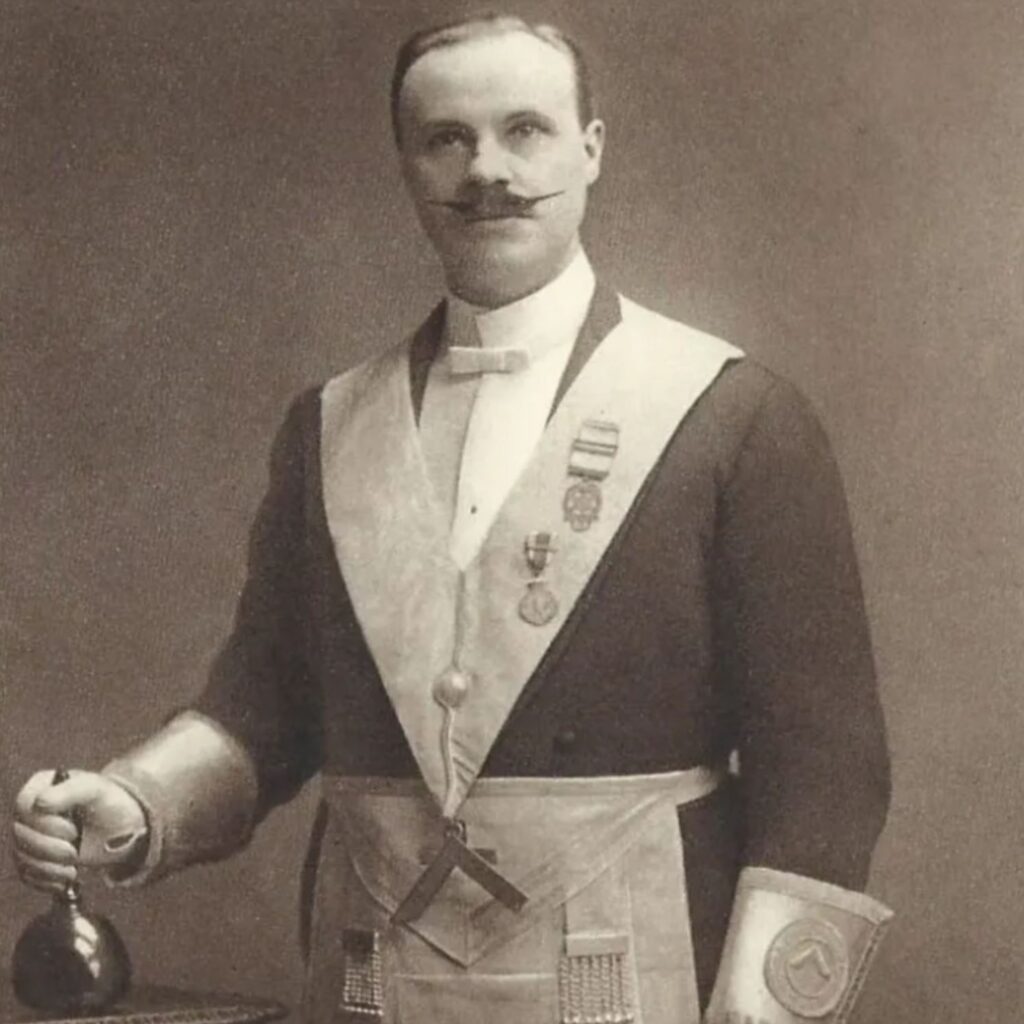
The running of a Freemasons Lodge will be familiar to anyone involved with a membership organisation. Someone to lead the team, someone to collect the monies, a team of people, or committee, to make decisions. Also someone to take down the actions and apply due process where it is required. The latter in Freemasonry is referred to as the secretary. A familiar term and accurate for what is required of the secretary.
If you speak to any Lodge and ask them who runs the Lodge, the answers you will get will vary. From the Director of Ceremonies, the Past Masters, the Master, or the Secretary. However, the only people who will tell you it is the Secretary who runs the Lodge, are the secretaries themselves. This is not accurate, or at least it should not be. The one who runs the Lodge and has the final say in matters is the Master himself. He (or she) who actually takes charge of the Lodge for the year.
How do you get to be a Master of the Lodge?. More importantly for this article, how do you get to be a Lodge Secretary?. As you may have guessed from the title, in my case, I believe I did it in my own way. All with my own views and methods.
Before I joined Freemasonry, and in particular Granite Lodge in Leicester, I knew next to nothing about the organisation. As those of you reading this who are members of the Craft (what Freemasons refer to as the three degrees of Freemasonry), will resonate with feelings of anticipation and intrigue. This happened the first time I set foot onto the chequered floor of a Masonic Lodge.
What you will find is a group of people who are only too willing to make you feel welcome. They talk to you on the level – another term often heard which means to have a conversation with anyone regardless of position in the Lodge or society as a whole. And also to offer help and guidance of matters relating to the Lodge.
Many new Freemasons will be given similar advice, to take time, and enjoy the Lodge. Progress towards the Master’s chair at your own pace and only if you wish too. But do not rush.
In my case, I was eager to learn and progress, not to rush, but also not to miss an opportunity to advance my knowledge in the Lodge, or elsewhere in connection to Freemasonry. When the third degree (Master Mason) is taken, a wide range of opportunities will be available. On my part, I would attend our meetings which are only eight times a year, and also visit other Lodges within the county and beyond. Not necessarily to gain more experience, but to enjoy myself.
As more visits to other Lodges occur, experience will grow. I began to form my own opinions of what to do next. All Master Masons are able to take the next step, and become a Royal Arch Mason. I am not one for taking a leap of faith without knowing what I am getting into, so a bit of research into what Royal Arch Masonry is, and when in the story of King Solomon (what Craft Masonry is based upon) it is set.
Many people offered advice to join the Royal Arch only when I had been Master of my Craft Lodge. However the pre-requisite is to have been through the third degree for four weeks and upwards. This would have meant waiting a further eight to ten years to join something which had already caught my intrigue.
So, I began to do things my way.
I joined the Royal Arch, along with several other side degrees. All of these have some link or another to Craft Masonry, and in my opinion add further parts to the story which Freemasonry is trying to tell.
After becoming Master of Granite Lodge, I opted to take the route of Lodge Secretary. This was, and probably still is, the best fit for my skills in terms of process and organisation. On the way I joined more Lodges and degrees. Tjis was often against the advice of some of the more senior members, and often against the advice of some who were not members of any of the other orders. But it is my path to tread, and with careful consideration have joined five Craft Lodges, two Royal Arch Chapters, and around ten other orders associated with Freemasonry.
With this becomes experience. My role within the Province of nearly eighty Lodges has also increased my knowledge and experience. It is fascinating to see how others operate, sometimes differently but all following the same set of guidelines.
One of the often too used phrases in Freemasonry is “that is not how we do it in this Lodge”. Or “we do it because it is tradition in this Lodge”. These phrases often irk me, as in my opinion we are there for the members, their enjoyment and participation, no matter how large or small. For example, we may debate doing something different, and will come up against tradition.
However we have over the years affected many changes, such as the place we meet which has changed, the time we meet, the day we meet. How much the subscriptions are, and how we operate the Lodge. The Lodge summons in previous times would be printed and posted. Now we all use email. But change can and should be for good, and it most often is, although not change for the sake of change.
The modern era throws us many challenges, but also opportunities. As people generally work different patterns of start and end times, so must the Lodge be flexible, doing it “their way” otherwise we will not be able to attract the new members we would like. If we look at the year 2020, and how much that has affected us all. We have had to change and adapt, for example using video conferencing with the same ease as making a telephone call. Using instant messaging on smartphones as easy as writing an email. We must ask, what will come next?
Well, nobody knows, but what I do know is that change is inevitable, and we must ride with that change. So perhaps the title of this article should be “we did it our way” rather than “I did it my way”.
What I do know, is that Freemasonry offers huge opportunities for social contact, friendship, charitable giving, and a sense of doing good. I will continue to grow my experience within Freemasonry. This may be at a fast pace, but that suits me. So indeed, I really have done it my way.
Granite Lodge Secretary
Richard Barnett





